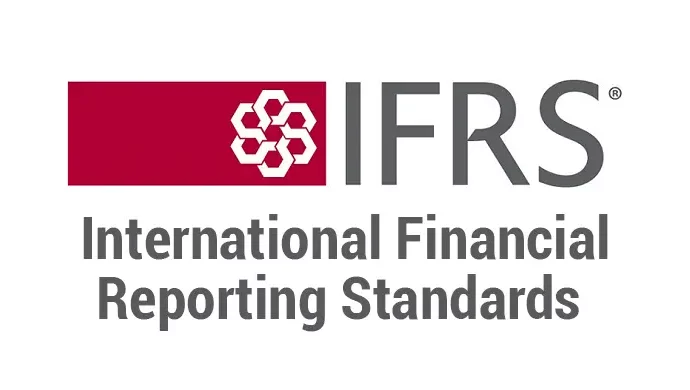Starting a business in Switzerland is a strategic decision that offers a wealth of advantages. Known for its stable economy, favorable taxation policies, and its central location at the heart of Europe, Switzerland provides a solid foundation for business growth and international expansion. Entrepreneurs are drawn to its competitive tax system, efficient infrastructure, and highly skilled workforce, all of which contribute to a thriving business environment.
In this ultimate guide, we will take you through the essential steps of company formation in Switzerland. From selecting the right legal structure to navigating administrative procedures, this guide highlights the critical elements you need to consider to ensure a smooth and successful setup process.
Why Choose Switzerland for Company Formation?
Switzerland is one of the most attractive destinations for entrepreneurs and businesses, offering a unique combination of economic stability, innovation, and favorable conditions for growth. Here are the key reasons why starting a company in Switzerland is a strategic choice:
Stable Economy and Infrastructure
Switzerland boasts a highly stable economy, with a strong GDP and one of the most secure banking systems in the world. Its robust infrastructure supports a wide range of industries, from finance and pharmaceuticals to technology and manufacturing. The country’s economic stability provides a reliable foundation for businesses, offering security in times of global uncertainty. Additionally, Switzerland’s world-class infrastructure—high-speed transport networks, advanced IT systems, and a strategic geographic location in the center of Europe—makes it an ideal hub for international business operations.
Favorable Taxation
One of the key draws for companies looking to establish themselves in Switzerland is its favorable tax system. Swiss cantons offer some of the most competitive corporate tax rates in Europe, with rates varying from canton to canton, allowing businesses to choose the location that best suits their financial goals. In addition, certain regions offer tax incentives and exemptions for qualifying companies, particularly those involved in innovation, research, or sustainable development. These benefits can significantly reduce operational costs, making Switzerland an appealing choice for both small startups and large corporations. Learn more about tax planning in Switzerland.
Innovation and Skilled Workforce
Switzerland is renowned for fostering innovation and is home to some of the world’s leading research institutions and universities. The country ranks high on global innovation indices, thanks to its support for cutting-edge research and development. Entrepreneurs benefit from a well-established ecosystem that promotes technological advancement, making it an ideal environment for startups and tech-driven businesses. Furthermore, Switzerland offers access to a highly educated and skilled workforce, providing companies with the talent necessary to thrive in competitive global markets.
These factors make Switzerland not only a secure and attractive destination for business formation but also a springboard for innovation and long-term success.
Types of Legal Entities in Switzerland
Choosing the right legal structure is crucial for your business’s success, as it directly impacts liability, taxation, and administrative responsibilities. Switzerland offers a range of legal forms tailored to different types of businesses, each with distinct advantages and requirements. Here are the most common legal entities available:
Sole Proprietorship (Einzelunternehmen/Raison individuelle)
The sole proprietorship is the simplest and most common legal form for individual entrepreneurs and small businesses. It’s ideal for freelancers, consultants, and artisans who wish to operate independently. No initial capital is required to establish a sole proprietorship, making it an accessible option for those with limited resources. However, this legal form comes with unlimited liability, meaning the owner is personally responsible for all business debts and obligations. This can be risky, as personal assets are exposed in the event of financial difficulties.
Another feature of a sole proprietorship is that the business name must include the surname of the owner. While this structure is easy to set up and maintain, it is recommended for businesses with lower financial risk, as the lack of limited liability can be a major drawback. It also doesn’t offer the opportunity to separate personal and business finances, which may complicate financial management as the business grows.
Limited Liability Company (GmbH/Sàrl)
A Limited Liability Company (GmbH in German, Sàrl in French) is one of the most popular legal forms in Switzerland for small and medium-sized enterprises (SMEs). It combines the flexibility of a sole proprietorship with the added protection of limited liability. Shareholders in a GmbH are only liable for the amount of capital they have invested, safeguarding personal assets from company debts. This structure is particularly beneficial for entrepreneurs seeking to minimize personal financial risk while still benefiting from the ease of running a smaller business.
To establish a GmbH, a minimum share capital of CHF 20,000 is required, which must be fully paid into a bank account before the company can be officially registered. At least one managing director must reside in Switzerland, and the company must have a registered Swiss address. The GmbH also allows for flexibility in business operations, as it can be formed by one or more shareholders, either individuals or legal entities.
This structure is ideal for family-owned businesses, startups, and growing companies that may seek investment in the future. Additionally, unlike a sole proprietorship, a GmbH enjoys better credibility and trust among business partners and financial institutions due to its formal legal structure and limited liability.
Public Limited Company (AG/SA)
The Public Limited Company (AG in German, SA in French) is the preferred legal form for larger businesses or those planning to expand significantly. It’s also an excellent choice for companies seeking to raise capital by issuing shares or preparing for an initial public offering (IPO). The AG/SA offers numerous benefits, including limited liability for shareholders and increased flexibility in managing ownership and investment.
To establish an AG/SA, the company must have a minimum share capital of CHF 100,000, with at least CHF 50,000 paid in at the time of registration. The remaining capital can be paid in over time. This higher capital requirement is one reason why AGs are generally used by larger businesses or those planning significant growth. Additionally, at least one board member must reside in Switzerland, and the company must have a Swiss registered office.
One of the key advantages of an AG/SA is the anonymity it offers shareholders, as their identities are not publicly disclosed in the Commercial Register. This feature is particularly attractive to investors who wish to maintain privacy. Furthermore, the AG/SA provides greater opportunities for international expansion, as it can issue shares to attract foreign investors.
The AG/SA structure is often used by multinational corporations, large businesses, and companies with multiple shareholders. It also allows for a more complex corporate governance structure, with a clear separation between the board of directors and executive management, which is beneficial for corporate transparency and accountability.
Comparison of Legal Entities
- Liability: Sole proprietorships have unlimited liability, while GmbHs and AGs limit liability to the amount of capital invested.
- Capital Requirements: Sole proprietorships have no minimum capital, GmbHs require CHF 20,000, and AGs require CHF 100,000.
- Administrative Complexity: Sole proprietorships are simpler to manage, but GmbHs and AGs offer more credibility and protection.
- Privacy: AGs offer the most privacy for shareholders, as their identities remain confidential.
In summary, each legal entity has its advantages and considerations. Sole proprietorships are best suited for low-risk, individual ventures, while GmbHs are ideal for SMEs seeking limited liability. AGs, with their higher capital requirements and enhanced privacy, are perfect for large corporations or businesses aiming for significant growth and investment. Selecting the appropriate structure based on your business goals and financial capacity is crucial for long-term success in Switzerland.


Steps to Form a Company in Switzerland
Forming a company in Switzerland involves a series of structured steps, each designed to ensure legal compliance and efficient operation. The process may vary slightly depending on the type of legal entity you choose, but the following are the general steps involved:
Choose the Legal Structure
The first and most crucial step in forming a company is deciding on the appropriate legal structure. This decision will impact your company’s liability, tax obligations, and capital requirements. You can choose between different legal entities such as a Sole Proprietorship, Limited Liability Company (GmbH/Sàrl), or a Public Limited Company (AG/SA).
- Sole Proprietorship is suitable for individual entrepreneurs with low-risk ventures since the owner bears unlimited liability.
- GmbH/Sàrl is ideal for small to medium-sized businesses looking to limit their liability, with a minimum share capital of CHF 20,000.
- AG/SA is recommended for larger corporations and companies planning to raise capital through investors, with a minimum capital requirement of CHF 100,000.
Selecting the right legal structure ensures that your company is aligned with your business goals and financial capabilities, offering the right balance of liability protection and operational flexibility.
Select a Company Name
Once you’ve chosen your legal structure, the next step is to select a unique name for your company. In Switzerland, strict guidelines exist to ensure no two businesses share the same name.
- Sole Proprietorships must include the surname of the business owner in the company name.
- GmbH/Sàrl and AG/SA offer more flexibility, allowing for a creative name, provided it complies with Swiss legal naming conventions. However, the company name must clearly distinguish the business from any existing entities registered in Switzerland and must reflect the legal form (e.g., GmbH or AG).
Before finalizing your name, it is essential to check its availability in the Swiss Commercial Register to ensure it has not already been taken. Additionally, securing the domain name for your company’s website at this stage is advisable to protect your brand identity.
Open a Bank Account for Capital Deposit
For legal entities such as GmbH/Sàrl and AG/SA, it is mandatory to open a temporary capital deposit account at a Swiss bank. This account is required to deposit the minimum share capital needed to form the company.
- For GmbH/Sàrl, a minimum of CHF 20,000 must be deposited.
- For AG/SA, the required minimum capital is CHF 100,000, with at least CHF 50,000 paid in at the time of registration.
Once the capital is deposited, the bank will issue a capital confirmation certificate, which is necessary to proceed with the company registration. The funds will remain frozen in the account until the company is officially registered, after which they can be transferred to the company’s operating account.
Draft Constitutive Documents
With the capital deposit in place, the next step is to prepare the legal documents required for company formation. These documents, known as the Articles of Association, outline key details about the company’s structure, purpose, and governance.
The Articles of Association must include:
- The company’s legal form and name
- The purpose of the business
- The location of the registered office
- Share capital (for GmbH/Sàrl and AG/SA)
- The distribution of shares among shareholders (if applicable)
- The appointment of directors and their roles
These documents must be reviewed and notarized by a Swiss notary, ensuring they meet all legal requirements. Notarization is a crucial step for GmbH/Sàrl and AG/SA structures, as it validates the legitimacy of the business formation process.
Register with the Commercial Register
The final step in the company formation process is registering the business with the Swiss Commercial Register. This registration formalizes your company’s legal existence and grants it the authority to operate within Switzerland.
To register your company, submit the following documents to the local Commercial Register:
- The Articles of Association, duly notarized
- The capital confirmation certificate from the bank
- Proof of identity and residence for directors
- Additional forms, such as tax-related declarations and company management agreements
Once your documents are submitted, the Commercial Register typically processes the application within 1 to 2 weeks. Upon successful registration, your company will receive an official extract from the Commercial Register, confirming its legal status.
At this stage, your company can begin operations, open a corporate bank account, and, if applicable, register for VAT if your expected turnover exceeds CHF 100,000 annually.
By following these steps, you can ensure a smooth company formation process in Switzerland, laying a strong foundation for your business’s future success.
Costs and Timeframe for Setting Up a Company
When forming a company in Switzerland, it’s essential to consider both the financial investment and the time required to complete the process. The costs and duration can vary significantly based on the legal structure you choose and the specific canton in which your company is registered.
Costs
The costs of setting up a company in Switzerland depend largely on the type of legal entity and the services you choose to use during the formation process. Below are the general cost estimates for different company types:
- Sole Proprietorship: The least expensive option, with basic costs ranging from CHF 500 to CHF 1,000. These costs primarily include registration with the Commercial Register, any required professional fees, and basic administrative expenses. There is no minimum capital requirement for a sole proprietorship, which makes it an affordable choice for small-scale entrepreneurs.
- Limited Liability Company (GmbH/Sàrl): Creating a GmbH typically costs between CHF 1,000 and CHF 3,000, depending on the complexity of the registration. The costs include Commercial Register fees, notarization of the Articles of Association, and legal consultation, if necessary. In addition to these, the required minimum share capital of CHF 20,000 must be deposited in a Swiss bank, although this amount remains available for the company’s use once registered.
- Public Limited Company (AG/SA): Forming an AG/SA can be more expensive due to the higher capital requirement and the more complex legal structure. The total cost for setting up an AG/SA ranges from CHF 3,000 to CHF 5,000 or more. This includes notarization, Commercial Register fees, legal services, and potentially higher banking fees for managing the minimum share capital of CHF 100,000, of which CHF 50,000 must be paid at registration.
Additional costs may also apply depending on the specific canton where your business is established, as some cantons have higher administrative fees. Other expenses may include obtaining business licenses, VAT registration, and securing legal or accounting services to help ensure compliance with Swiss regulations.
Timeframe
The timeframe for setting up a company in Switzerland generally depends on the complexity of the legal entity, the preparation of the necessary documents, and the canton in which you are registering. However, the process is efficient and can often be completed within a few weeks.
- Sole Proprietorship: This is the fastest business structure to establish, typically taking 1 to 2 weeks. Since no formal capital deposit or notarization is required, the administrative steps are minimal, making it a quick process.
- GmbH/Sàrl: The formation of a GmbH usually takes about 2 to 4 weeks. After depositing the minimum capital of CHF 20,000, it may take a few days for the bank to issue the capital confirmation certificate. Once the constitutive documents are notarized, the company can be registered with the Commercial Register, which may take up to two weeks to complete, depending on the canton.
- AG/SA: Due to the more complex requirements, forming an AG/SA may take slightly longer—typically 3 to 5 weeks. The process includes opening the capital deposit account, having the necessary documents notarized, and submitting them to the Commercial Register. In some cantons, the registration process might be quicker, while in others, it could take additional time depending on the workload of the authorities.
It’s also important to note that some cantons have faster processing times for company registration than others. For instance, cantons like Zurich or Zug may have shorter timeframes due to their well-established administrative processes for company formation.
By planning for these costs and timeframes, you can manage your expectations and ensure that your company formation in Switzerland goes smoothly and efficiently.


Post-Incorporation Requirements
Once your company is successfully incorporated in Switzerland, there are several important post-formation requirements you must fulfill to ensure compliance with Swiss regulations. These include VAT registration, social security obligations, and mandatory insurance for your employees.
VAT Registration
In Switzerland, businesses are required to register for Value Added Tax (VAT) if their annual turnover exceeds CHF 100,000. VAT is a consumption tax levied on most goods and services provided by businesses, and companies must charge VAT on their taxable supplies.
- Threshold: If your business generates revenue above CHF 100,000 per year, VAT registration is mandatory. Companies with turnover below this threshold can voluntarily opt for VAT registration if it benefits their operations.
- Process: To register for VAT, you will need to submit an application to the Federal Tax Administration (FTA). Once registered, your company will need to charge VAT on applicable goods and services and submit periodic VAT returns, typically on a quarterly basis.
- Rates: The standard VAT rate in Switzerland is currently 7.7%, with reduced rates of 2.5% for essential goods (such as food and medicine) and a special rate of 3.7% for the hotel industry.
Failure to register for VAT on time may result in penalties, so it’s essential to monitor your turnover and file for registration promptly if your revenue exceeds the threshold.
Social Security and Insurance
Switzerland has a well-established social security system designed to protect employees and employers alike. After incorporation, your company must register its employees for social security and provide the necessary insurance coverage to comply with Swiss law.
- Social Security Contributions (AHV/AVS): All businesses must register their employees with the Old-Age and Survivors Insurance (AHV/AVS), which is Switzerland’s compulsory social security system. Both the employer and the employee contribute to this fund, which provides retirement benefits, disability insurance, and survivor benefits. The contribution rate is split equally between the employer and employee, and payments must be made regularly to the AHV compensation office.
- Accident Insurance (UVG/LAA): Employers are also required to take out accident insurance for their employees, which covers occupational accidents and diseases. This insurance is compulsory under Swiss law and is designed to protect employees in case of workplace injuries. Employers must arrange coverage through either Suva (the Swiss Accident Insurance Fund) or a private insurer.
- Occupational accident insurance is mandatory for all employees and covers accidents that occur in the workplace.
- Non-occupational accident insurance is required for employees working more than 8 hours per week and covers accidents outside of work.
- Occupational Pension (BVG/LPP): In addition to social security, companies with employees earning more than CHF 22,050 per year must offer an occupational pension plan (BVG/LPP). This second-pillar pension system complements the AHV/AVS and helps employees save for retirement. As with social security, both employers and employees contribute to the occupational pension, with the employer required to pay at least 50% of the contribution.
- Health and Disability Insurance: Although not directly provided by employers, health insurance is mandatory for all residents in Switzerland. Employers should ensure that their foreign employees are aware of this requirement, as they must obtain private health insurance within three months of moving to Switzerland. Additionally, employers may also consider disability insurance to cover the risk of long-term illness or disability for their workforce.
By fulfilling these post-incorporation obligations, your company will not only remain compliant with Swiss law but also ensure that your employees are protected and adequately insured. Ignoring these requirements can result in penalties or legal issues, so it is essential to prioritize these tasks as part of your ongoing business operations.
Comments from ALPINEGATE Business Advisors
At ALPINEGATE Business Advisors, we take pride in guiding entrepreneurs through every step of the company formation process in Switzerland. With our deep expertise in Swiss legal regulations and tax planning, we provide tailored solutions to ensure your business succeeds from day one.
We understand that every business is unique, and that’s why our team works closely with clients to help them choose the right legal structure, manage their tax obligations, and ensure full compliance with all regulatory requirements. Contact us for a detailed consultation and take the first confident step towards establishing your business in Switzerland.
Conclusion
Starting a company in Switzerland provides entrepreneurs with numerous opportunities, from benefiting from a stable economy and favorable tax conditions to accessing a skilled workforce and cutting-edge innovation. The process may seem complex, but by carefully following the steps outlined in this guide—choosing the right legal structure, registering with the necessary authorities, and meeting post-incorporation requirements—you can ensure a smooth and efficient company formation.
For tailored advice and expert assistance in navigating the Swiss business landscape, contact ALPINEGATE Business Advisors today. Our experienced team is here to support you through every stage of the company formation process, ensuring your business gets off to the best possible start in Switzerland.
Common Questions About Company Formation in Switzerland
How much does it cost to set up a company in Switzerland?
The costs of setting up a company in Switzerland depend on the legal structure you choose. For a sole proprietorship, costs can range from CHF 500 to CHF 1,000. Forming a GmbH typically costs between CHF 1,000 and CHF 3,000, while creating an AG may cost around CHF 3,000 to CHF 5,000 due to the higher capital requirement and more complex processes. Additional costs may include legal fees, notarization, and registration in the Commercial Register.
How long does it take to form a company in Switzerland?
The timeframe for forming a company in Switzerland varies based on the legal structure and the canton. A sole proprietorship can be set up in as little as 1 to 2 weeks. The process for establishing a GmbH or AG generally takes between 2 to 4 weeks, depending on the speed of document preparation and registration with the Commercial Register. Complex cases or canton-specific regulations may slightly extend the process.
Do I need to live in Switzerland to start a company?
You do not need to live in Switzerland to start a company, but certain conditions apply. For a GmbH or AG, at least one director with signing authority must be a resident of Switzerland. This requirement ensures that your company has local representation. If you are not a resident, you may need to appoint a nominee director or seek professional services to fulfill this requirement.
What type of legal entity is best for a small business?
For small businesses, a Limited Liability Company (GmbH/Sàrl) is often the most suitable legal structure. It offers limited liability to protect personal assets, requires a manageable minimum capital of CHF 20,000, and allows for flexibility in management. Sole proprietorships are another option for very small businesses or freelancers, but they come with unlimited liability, which increases the financial risk to the owner.
What are the tax obligations after forming a company in Switzerland?
Once your company is formed, you may be required to register for Value Added Tax (VAT) if your annual turnover exceeds CHF 100,000. Additionally, all companies must contribute to social security and provide mandatory insurance coverage, including accident insurance for employees. Corporate taxes are levied at both the federal and cantonal levels, and tax rates can vary depending on the canton where your business is registered. It is essential to stay informed about local tax laws to ensure compliance.


